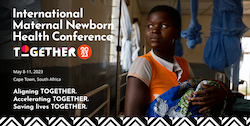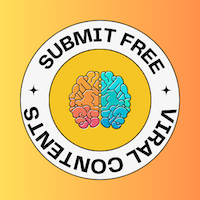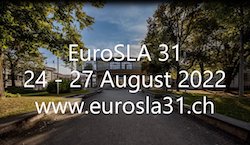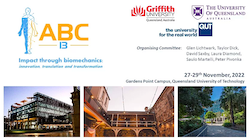International Psychological Applications Conference and Trends 2021 (InPACT 2021)
24 to 26 of April, 2021 – Virtual Conference
Due to the COVID-19 pandemic, we decided to shift to a full virtual event in 2021, since the health and safety of our attendees is our top priority.
We will have sessions with live presentations throughout the 3 days of the conference (April 24 to 26). The authors will be able to present their contributions virtually, either live (online platform) or by sending a pre-recorded video presentation – http://inpact-psychologyconference.org/covid-19-update/
= Important Dates =
Check in http://inpact-psychologyconference.org/important-dates/
= Conference Goals =
The goal for this conference is to offer a new approach to the discussion and presentation of the psychological science nowadays. We expect to engage and interact with authors and researchers from various countries, cultures and fields in the area. We provide the answer to expose new quality developments in research and theoretical findings in Applied Psychology. Some main areas are chosen and divided in more detailed sub-themes (see below), not omitting other topics regarding groundbreaking contributions that might benefit attendees at the conference.
= InPACT format =
The conference will cover many types of presentation formats, incorporating Invited Keynote Speakers, oral and thematic showcases. Among the conference materials, given to all registered attendees, a book will be published and provided with the Proceedings. Other publication opportunities will also be available.
= Themes of Interest =
This year, you are welcome to reflect on the impact of COVID-19 within the context of Applied Psychology.
To develop the conference program, we have chosen five main broad-ranging categories in Applied Psychology, which also covers different interest areas:
– In CLINICAL PSYCHOLOGY: Emotions and related psychological processes; Assessment; Psychotherapy and counselling; Addictive behaviors; Eating disorders; Personality disorders; Quality of life and mental health; Communication within relationships; Services of mental health; and Psychopathology.
– In EDUCATIONAL PSYCHOLOGY: Language and cognitive processes; School environment and childhood disorders; Parenting and parenting related processes; Learning and technology; Psychology in schools; Intelligence and creativity; Motivation in classroom; Perspectives on teaching; Assessment and evaluation; and Individual differences in learning.
– In SOCIAL PSYCHOLOGY: Cross-cultural dimensions of mental disorders; Employment issues and training; Organizational psychology; Psychology in politics and international issues; Social factors in adolescence and its development; Social anxiety and self-esteem; Immigration and social policy; Self-efficacy and identity development; Parenting and social support; and Addiction and stigmatization; Psychological and social impact of virtual networks.
– In LEGAL PSYCHOLOGY: Violence and trauma; Mass-media and aggression; Intra-familial violence; Juvenile delinquency; Aggressive behavior in childhood; Internet offending; Working with crime perpetrators; Forensic psychology; Violent risk assessment; and Law enforcement and stress.
– In COGNITIVE AND EXPERIMENTAL PSYCHOLOGY: Perception, memory and attention; Decision making and problem-solving; Concept formation, reasoning and judgment; Language processing; Learning skills and education; Cognitive Neuroscience; Computer analogies and information processing (Artificial Intelligence and computer simulations); Social and cultural factors in the cognitive approach; Experimental methods, research and statistics; and Biopsychology.
– In PSYCHOANALYSIS AND PSYCHOANALYTICAL PSYCHOTHERAPY: Psychoanalysis and psychology; The unconscious; The Oedipus complex; Psychoanalysis of children; Pathological mourning; Addictive personalities; Borderline organizations; Narcissistic personalities; Anxiety and phobias; Psychosis; and Neuropsychoanalysis.
= Types of Contributions =
All submissions are subjected to a blind-review refereeing process and are divided in these categories:
– Oral Presentations
– Posters
– Workshops
– Corporates can also showcase their products or services in the conference exhibitions area by contacting the secretariat or publicity email (provided below).
= Conference Date and Location=
InPACT 2021 will be held in full Virtual format, and will occur from 24 to 26 of April, 2021.
= Contacts =
Conference email: secretariat@inpact-psychologyconference.org
Publicity email: publicity@inpact-psychologyconference.org
Conference and Program Co-Chairs:
Prof. Dr. Clara Pracana
Full and Training member of the Portuguese Association of Psychoanalysis and Psychoanalytic Psychotherapy, Portugal
Prof. Dr. Michael Wang
Emeritus Professor of Clinical Psychology, University of Leicester, United Kingdom
![]()
Advertisements









 Call for Papers
Call for Papers  Event Schedule
Event Schedule  Go to Event Website
Go to Event Website